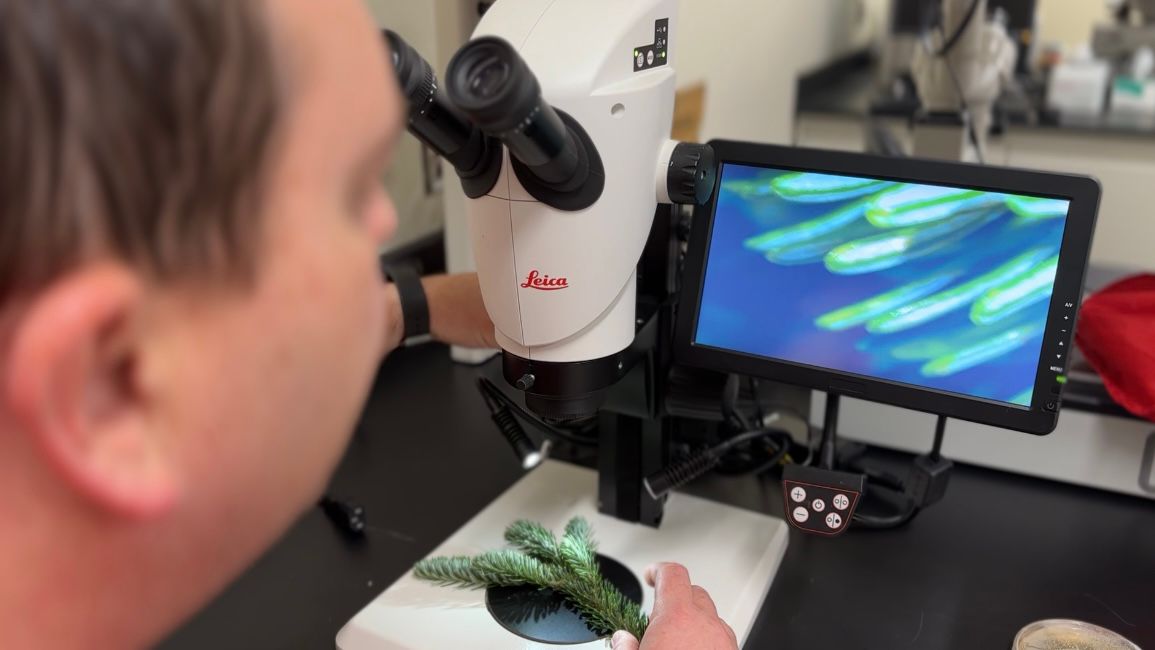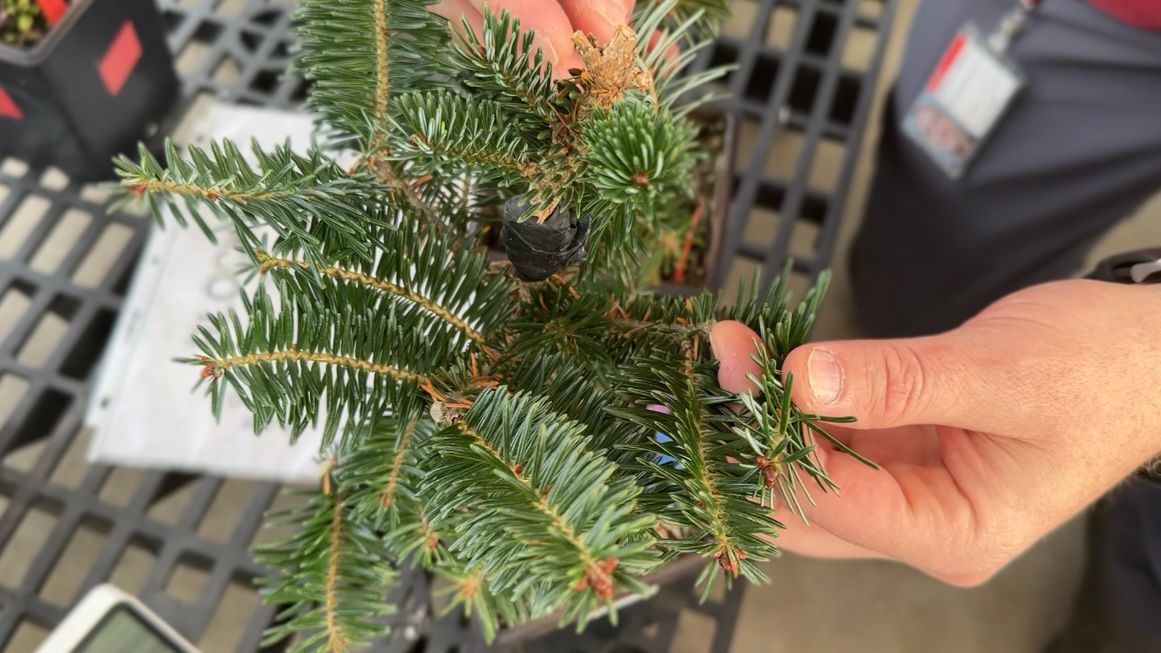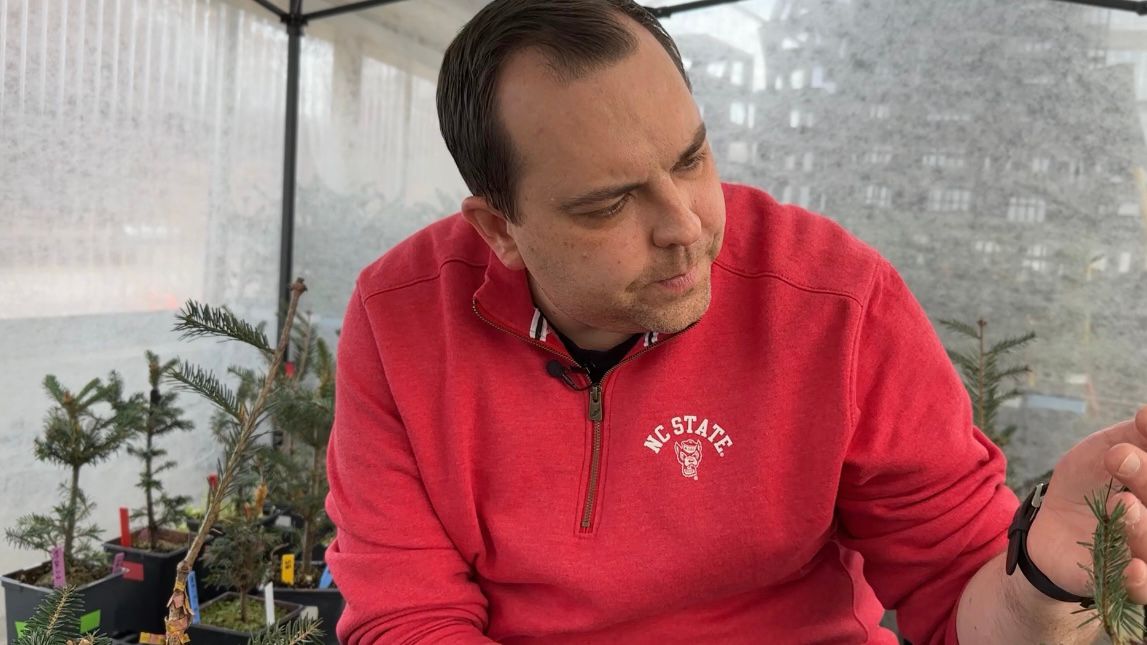RALEIGH, N.C. – Researchers at N.C. State are working to develop the next generation of Christmas trees through some genetic improvements that will make them better than any you could find on a lot today.

Research into Christmas tree genetics has the potential to resolve the shortage of trees and the skyrocketing prices, not to mention the sustainability of one of the state’s leading industries.
“It is really important for our growers because that means they can, over time, produce more Christmas trees and have more economic revenues coming in,” said Dr. Justin Whitehill, the lead researcher for the Christmas Tree Genetics program at N.C. State. “By reducing the amount of labor, increasing production cycles, reducing the time to harvest, the cost will be coming down for consumers.”

This research began years ago by looking for elite trees that already possessed traits that made them stand out from the rest. Researchers in Whitehill’s lab are now focused on domesticating and propagating those genes so that every seed has the most sought-after characteristics.
“We evaluated them to see what trees grew the fastest, what looked the best as Christmas trees, what had the best needle retention after they were harvested, and so we selected kind of the best of the best trees from those wild seeds we collected, we propagated those and we've established a seed orchard,” Whitehill said.
They are working with Christmas tree grower associations at the state and national levels in hopes of ensuring this industry continues to thrive. North Carolina is consistently one of the top two producers of Christmas trees in the nation and the business contributes hundreds of millions of dollars to the state’s economy each year.
“For the past few years, Ashe County, North Carolina, has been the No. 1 producer, which is where we do all of our research,” Whitehill said. “The industry itself contributes anywhere between $225 million to $500 million to the state's economy annually.”

This research started decades before Whitehill took over the lab, but he said we’re finally getting closer to having a genetically improved tree for the holidays. They expect to distribute their elite seeds to growers by 2026 and another six to seven years after that the first genetically improved trees from the Whitehill Lab Christmas Tree Genetics Program will hit the market.
“When I see trees, I think they're the thing that we need to preserve for future generations,” Whitehill said.



